Can You Make Cottage Cheese in a Yogurt Makee
How to Make Cottage Cheese – The Easy Way!
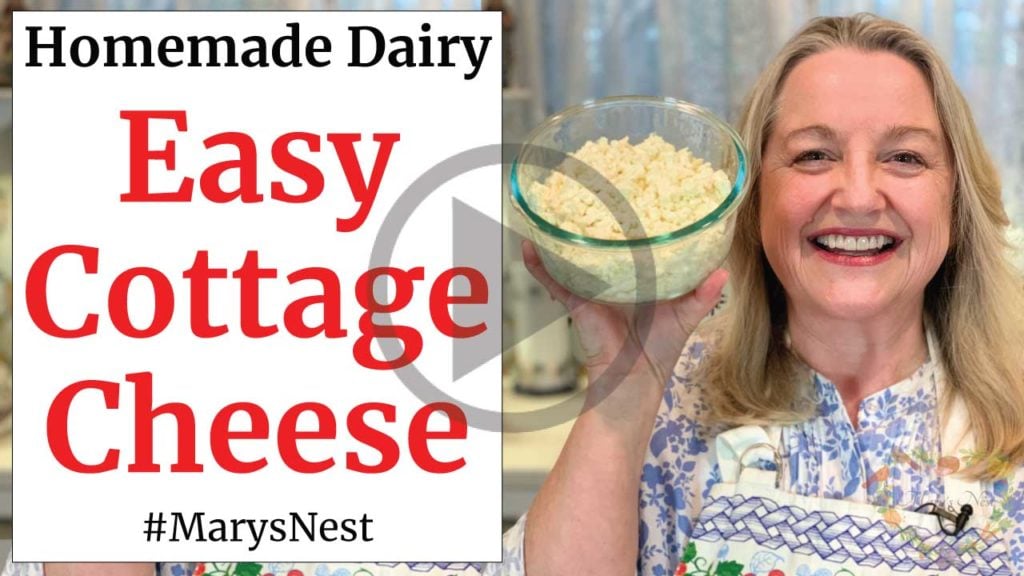
Today, I am sharing How to Make Cottage Cheese – The Easy Way! This recipe provides step-by-step instructions on how you can quickly make this cheese on your stovetop. Best of all, you have the flexibility to use any type of milk you want from Fat Free to Whole Milk.
The Easy Way to Make Cottage Cheese
This recipe gives you an easy way to make cottage cheese without the need for special equipment or unusual ingredients. Now, when it comes to soft cheeses, are these exactly like what you might find at the grocery store? Not exactly. But they are close enough. And your homemade cheese will often be better tasting with less ingredients!
No Rennet Required
Stovetop Soft Cheeses are easy to make because you do not need to use rennet. But what is rennet? It's curdled milk from the stomach of an unweaned calf. The rennet contains rennin, which is used in curdling milk for making cheese.
You can certainly find a source for rennet from a specialty cheesemaking store or from an online source. But unless you are a regular cheesemaker, it's so much easier to make a nice soft cheese without rennet on the stovetop with as little as two ingredients!
Two Ingredient Cottage Cheese
And what are these two ingredients? For making homemade cottage cheese on the stovetop, all you need is milk and some sort of acid. For the acid, I like white vinegar, but you can certainly use lemon juice instead.
You'll warm the milk on the stovetop in a large pot, and when it's nice and warm, you'll add your acid and let the curds form in the liquid. That's it!
Now You Have Curds and Whey
Once the curds form, you'll strain them from the liquid whey and…voila! The curds are your Homemade Cottage Cheese!
In my instructional video, I walk you through exactly how to strain your curds, and I also share a few tips on how to use the whey, so be sure to watch the How to Make Cottage Cheese video to learn more!
More Homemade Dairy Videos
Now that you've made cottage cheese, try your hand at other Homemade Dairy recipes, including an easy yogurt made without a machine, plus kefir, evaporated milk, and condensed milk too! And once you've made homemade condensed milk, try my favorite ice cream recipe—no ice cream maker required!
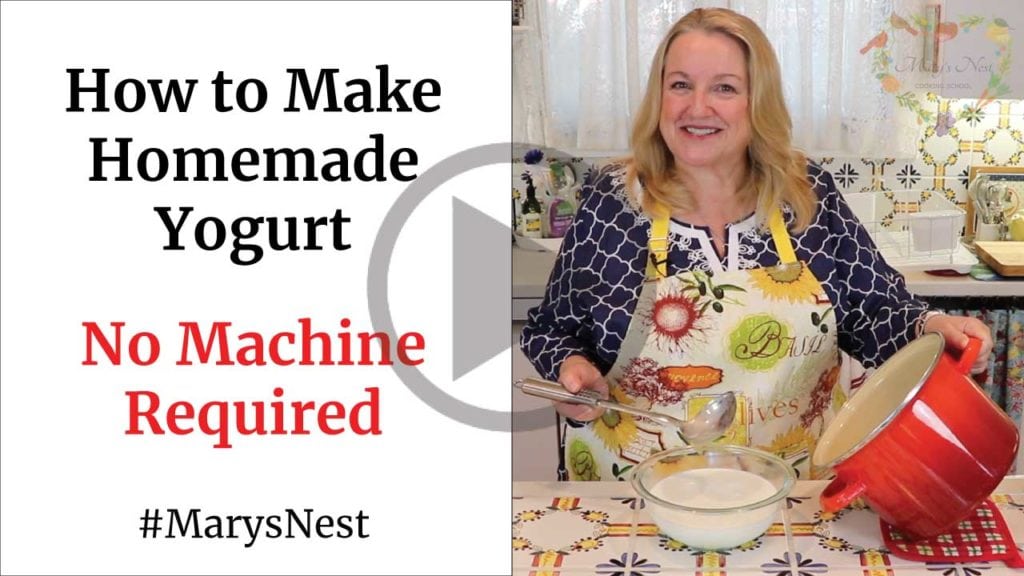
- How to Make Homemade Yogurt – No Machine Required
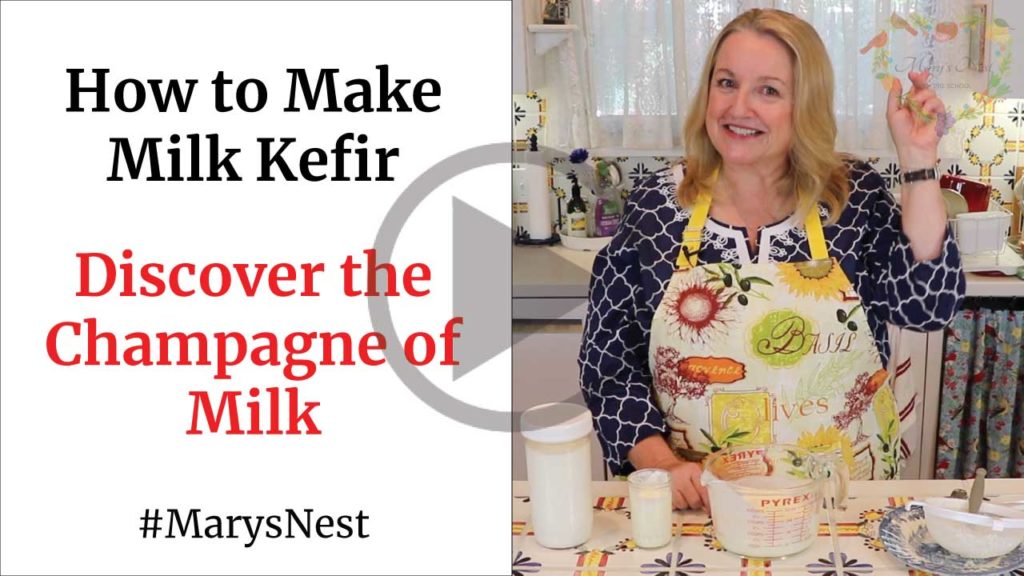
- How to Make Milk Kefir – Discover the Champagne of Milk
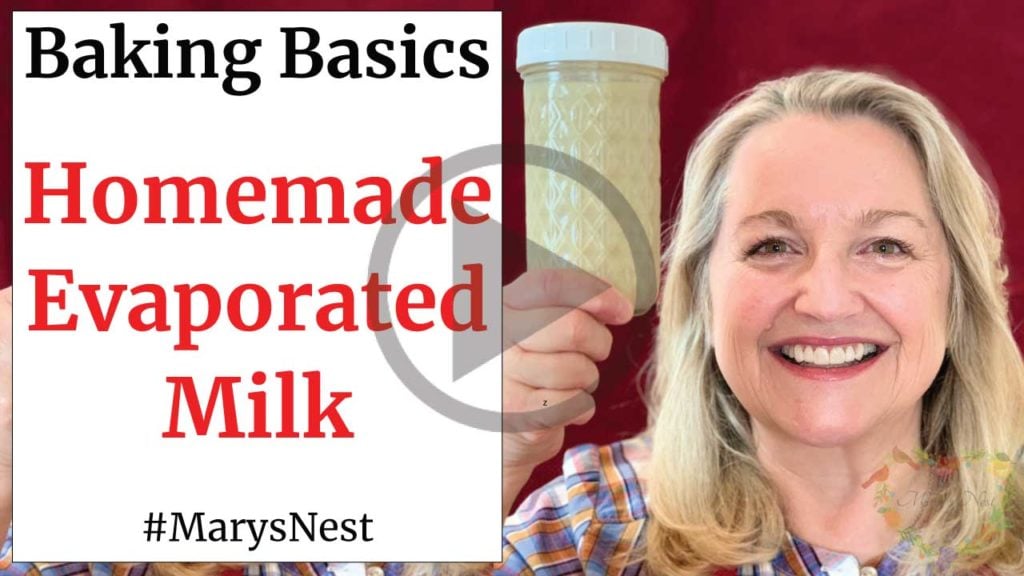
- How to Make Evaporated Milk
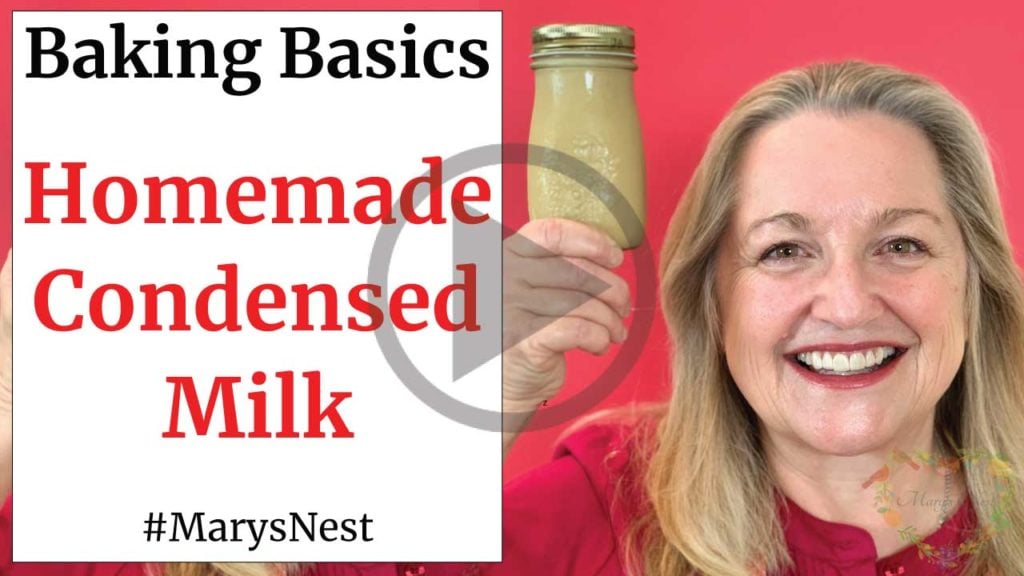
- How to Make Condensed Milk
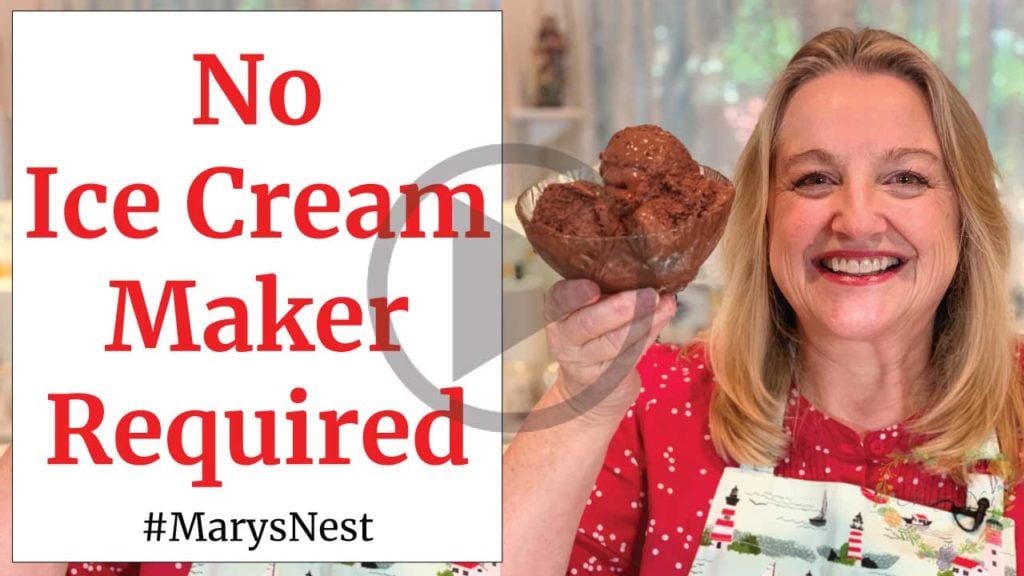
- The Easiest Way To Make Homemade Ice Cream Without an Ice Cream Maker
Stay in Touch with Mary's Nest
- Subscribe to My YouTube Channel for Traditional Foods Videos (Free) - When you subscribe, be sure to click on the notification bell that will let you know each time I upload a new video.
- Subscribe to Mary's Traditional Foods Newsletter (Free) - Get a free eBook for signing up: How to Stock Your Essential Traditional Foods Four-Corners Pantry.
- Join the Traditional Foods Kitchen Academy (Optional Paid) - For more detailed videos, live streams, and exclusive members-only perks, join my YouTube membership community.
I look forward to having you join me in my Texas Hill Country Kitchen!
Love,
Mary ♥
How to Make Cottage Cheese
Make this homemade quick cottage cheese, and you'll never buy store-bought again!
Cook Time 30 mins
Curdling Time 30 mins
Course: Cheese, Pantry Staples
Cuisine: Americana
Keyword: Cheese, Cottage Cheese, Homemade Cottage Cheese
Servings: 2 cups
-
Heavy bottom pot or sauce pan
-
Food safe thermometer, optional
-
Colander or mesh strainer
-
Cheese cloth or flour sack towel
- 1 gallon Milk whole milk, 2% milk, or fat-free (non-fat/skim) milk
- 3/4 cup White distilled vinegar, 5% lemon juice can be substituted
- Heavy cream, optional
- Sea salt, optional
-
Pour all the milk into a pot on the stovetop, and warm the milk slowly on medium heat until it reaches approximately 120°F. If you do not have a food safe thermometer, the milk should be quite warm to the touch.
-
One the milk reaches the approximate temperature, remove it from the heat, and gently pour in the vinegar (or lemon juice, if using).
-
Stir the milk and vinegar together gently for a minute to two to make sure that the vinegar is well distributed throughout the milk.
-
Cover the pot and allow it to rest for 30 minutes.
-
After 30 minutes, the milk should have curdled significantly, and the liquid surrounding the curds should be a pale yellow. If the liquid still looks like a white milk color, add an additional 1/4 cup of vinegar and stir gently. More curds should form, and the liquid should turn a pale yellow.
-
Line a colander or mesh strainer with the cheesecloth or flour sack towel, and place over a bowel. Pour the contents of the pot into the lined colander. The yellow liquid, which is whey, will strain through, and you should be left with curds in the cheesecloth or flour sack towel. Allow the curds to strain for 5 to 10 minutes.
-
You now have cottage cheese. The gallon of milk should yield you approximately 2 cups of cottage cheese. You can refrigerate the cheese as is, and it will stay fresh in your refrigerator for 5-7 days. If you wish, you can add approximately a quarter cup of heavy cream, and salt to taste, to the 2 cups of curds to give the cottage cheese a texture more similar to what you can find at the grocery store.
Shop for items used in this blog post or video
Favorite Cheese Making Supplies
- 4-Quart Enameled Cast Iron Pot
- Spatula
- Stainless Steel Colander
- Stainless Steel Mesh Strainer
- Flour Sack Towels
- Glass Bowl Set
Recommended Reading
- Nourishing Traditions: The Cookbook that Challenges Politically Correct Nutrition and Diet Dictocrats
- Nourishing Broth: An Old-Fashioned Remedy for the Modern World
- Nourishing Diets: How Paleo, Ancestral and Traditional Peoples Really Ate
Amazon Shop and Shopping Guide
- Visit Mary's Nest Amazon Shop
- Visit my Shopping Guide page
Learn where I buy my Beef Bones, Wild-Caught Fish, Sprouted Grains, and more…and learn about Special Discounts for Mary's Nest visitors, including from US Wellness Meats, Vital Choice, Masontops, and Breadsmart.
*Affiliates note: As an Amazon Associate I earn from qualifying purchases. My videos and blog posts may contain affiliate links to products and services. If you click through and make a purchase, I'll receive a small commission. It does not affect the price you pay.
** Disclaimer: I am not a medical doctor, a medical professional, a dietician, or a nutritionist. All content found on the MarysNest.com website, including text, images, videos, eBooks or eGuides, social media, or other formats, were created solely for informational purposes only. The content is not intended to be a substitute for professional medical advice, diagnosis, or treatment. Always seek the advice of your physician or other qualified healthcare provider with any questions you may have regarding a medical condition or proper nutritional advice. Never disregard professional medical advice or delay in seeking it because of something you have watched in a video or read on this website. Use caution when following the recipe in this video. The creator and publisher of this video and website will not be held responsible for any adverse effects that may arise from the use of this recipe and method or any other recipe and method on this website or corresponding video channel.
Can You Make Cottage Cheese in a Yogurt Makee
Source: https://marysnest.com/how-to-make-cottage-cheese/